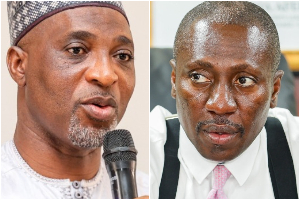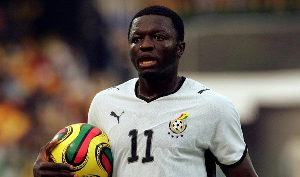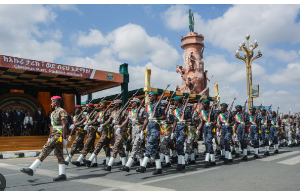Economist Paul Frimpong has said that the occurrences after the 2020 election have shown all Ghanaians the true state of our economy.
He shared that usually during the election period, “things get out of hand and so some figures and other issues are either massaged or kept away from the public in the interest of making sure that you can be retained in power”.
In an interview with Samuel Eshun on e.TV Ghana’s Fact Sheet show, he stated that the rising need for Ghanaians to cover the expenditure of the country has been the outcome of the country’s spending, especially during the COVID-19 era.
“I think in any budget that is read post-election, you get to have our sense of reality being put out there. We just had the election in December so obviously, the next election is in four years so if you are in charge of an economy that has gone through an election, obviously, we know the cyclical effect the election has on our economy,” he said.
Per his view, in election years, the economic truth of every country is hidden from its populace by the government seeking to retain power. “And there is usually a lack of information in such a period”, he admitted.
The reality of the economy he posits is only revealed after the election when the most critical decision has been made. “After the election, one sees a bit of reality in the budget that we have and clearly this budget that was read on Friday has shown every Ghanaian that this is where we are in terms with how we can sustainably contain the social problems we suffer”.
The expert explained that it is now clear the freebies enjoyed prior to elections in the guise of relief in the era of COVID-19 were not free at all. “It is now clear that we have to be the ones to pay for the free water and electricity and that is what Government is showing us”.
Paul indicates the country is in an unfortunate position. “When we look at the financing bit, the expenditure and the revenue that is coming in, we know that there is a deficit due to COVID-19 and its impact on every economy in the world”.
He believes Ghana’s economy can only do well if it looks internally to generate revenue to cater for the remainder of the expenses, “with the revenue that we expect to generate and that is where we will have the issues of taxes being issued”.
Information Minister, Kojo Oppong Nkrumah has indicated that Ghanaians will have to pay for the free provision of water and electricity introduced by the government in 2020 as part of measures to curb the spread of the novel coronavirus.
According to him, the decision last year was because the pandemic was a looming crisis and the government had to improvise for the country’s well-being.
Oppong Nkrumah said, “It was free to the people of Ghana at the time.”
“When we say free electricity it doesn’t mean that the IPP producer is also going to say because the President has said free electricity I won’t charge for it.”
He said Ghana has spent about ¢19 billion on Covid-19 related issues and that includes the relief package on the utilities.
“But that 19 billion cedis has to be paid for at some point, the liabilities we have incurred has to be paid for,” he indicated Monday night.
This, according to him, will help ameliorate the economy and bridge the gap between the country’s income and expenditure.
Business News of Thursday, 18 March 2021
Source: etvghana.com













